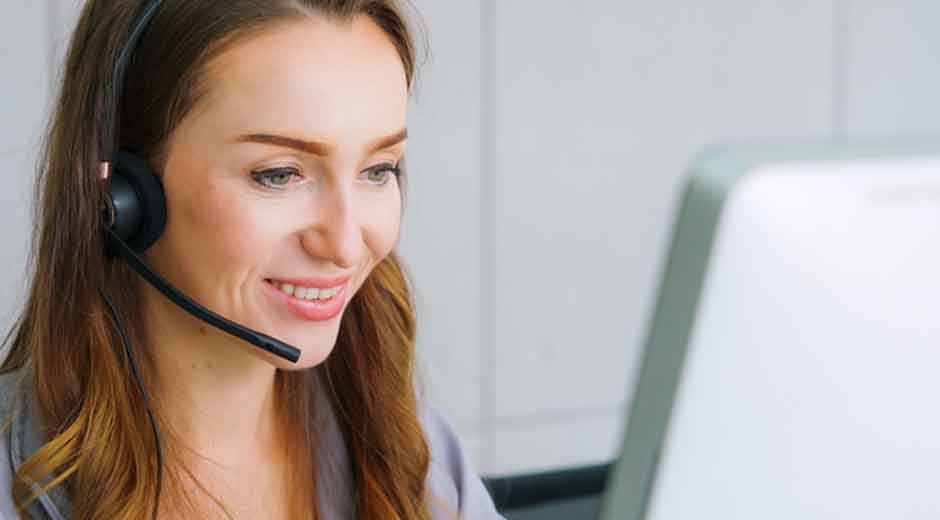Skip to the good bit
ToggleIf patients are left waiting on hold, appointment slots are going unfilled, or your in-house staff is overwhelmed, the issue may be right at your front desk.
In a medical practice, the receptionist is often the first point of contact. That first impression matters, and it needs to be calm, accurate, and efficient. However, traditional reception setups can quickly become overloaded, especially during peak hours or staff shortages. That’s where virtual receptionists come in.
They’re helping medical practices reduce pressure on in-house teams, improve patient communication, and streamline daily admin tasks without adding to overhead.
What Does a Virtual Medical Receptionist Do?
Virtual receptionists work remotely but serve your practice just like an in-house front desk staff member. They can handle:
- Answering phone calls and triaging based on urgency
- Booking, confirming, and rescheduling appointments
- Managing referrals and patient inquiries
- Sending reminders or follow-ups
- Processing basic admin tasks like data entry or insurance pre-checks
All of this is done using secure systems and platforms that connect them to your practice. They’re trained in medical terminology, understand confidentiality protocols, and know how to speak with patients professionally and compassionately.
Why Traditional Front Desks in Healthcare Struggle
A busy front desk in a medical setting isn’t just about answering phones. It’s a constant juggle of walk-ins, phone calls, scheduling, paperwork, and patient queries. This makes it easy for important tasks to slip through the cracks.
Some of the most common challenges include:
- Overwhelmed staff– Your receptionist is often doing five jobs at once. Mistakes happen when multitasking becomes too much.
- Long wait times– Calls go unanswered or are rushed, leaving patients frustrated and less likely to rebook.
- No backup– If someone calls in sick or quits, coverage gaps happen fast.
- Limited capacity– One receptionist can only do so much, and hiring extra support isn’t always in the budget.
These aren’t just internal problems. They directly affect patient experience and retention.
The Advantages of a Virtual Receptionist in a Clinical Setting
Virtual receptionists for doctors aren’t just a temporary fix. With the right setup, they become a seamless extension of your team, without the space or overhead costs of adding more desks. They offer consistent, professional support that grows with your practice and adapts to changing patient needs.
1. More Consistent Patient Support
Virtual receptionists can provide support across longer hours, including early mornings or after-hours coverage. This is especially useful for clinics that serve working patients or manage high volumes of incoming calls.
2. No Missed Calls, Fewer No-Shows
Missed calls often mean missed appointments. A virtual receptionist can answer calls promptly, follow up with no-shows, and ensure every available slot is filled. They can also send reminders to reduce forgotten bookings.
3. Less Admin Pressure on Clinical Staff
Doctors and nurses often get pulled into admin tasks when reception is stretched thin. With virtual support handling the front line, clinical staff can stay focused on patient care.
4. Cost-Effective Staffing
You get qualified reception support without paying for office space, equipment, or in-person staffing costs. It’s an affordable way to expand capacity without a full-time hire.
5. Scalable for Busy Periods
Whether it’s flu season, school holidays, or the lead-up to the new year, patient volume can spike quickly. Virtual reception support can be scaled up when you need it, then reduced again when things settle.
6. Fewer Distractions at the Front Desk
Virtual receptionists take over routine or non-urgent communication, freeing up your on-site receptionist to manage face-to-face patients with more care and attention.
When Does a Medical Practice Need Virtual Reception?
You don’t need to be running a large clinic to benefit. Even solo practitioners and small practices can see noticeable improvements with virtual reception. It’s particularly helpful if:
- You’re missing calls during the day
- Appointments often go unconfirmed or no-show
- Patients complain about communication delays
- Your staff are feeling stretched or burnt out
- You’re expanding to multiple locations or time zones
Adding remote support doesn’t mean replacing your existing team. It simply helps redistribute the workload in a smarter, more manageable way.
Key Areas Where Virtual Reception Makes the Biggest Difference
Here are the main ways virtual support improves day-to-day operations in healthcare:
Call handling
Fewer missed calls and faster response times, leading to better patient satisfaction.
Appointment management
More confirmations, fewer no-shows, and improved use of available slots.
Admin relief
Less time spent on phone tag, manual scheduling, and back-and-forth messages.
Team focus
In-house staff can better serve walk-ins and patients at the clinic without constant interruptions.
In short, the front desk becomes less reactive and more strategic. And your practice feels calmer and more in control as a result.
Where Efficiency Meets Care
For healthcare providers, time is one of the most valuable resources. Every minute spent on scheduling issues or chasing missed calls is time not spent with patients.
Virtual receptionists allow medical practices to stay responsive, organized, and patient-focused without the stress of overhiring or underdelivering. It’s not about cutting corners; it’s about creating space for care to come first.
If your front desk feels like it’s falling behind, the solution might not be adding more hours or more staff on site. It might be stepping outside the front door altogether.







